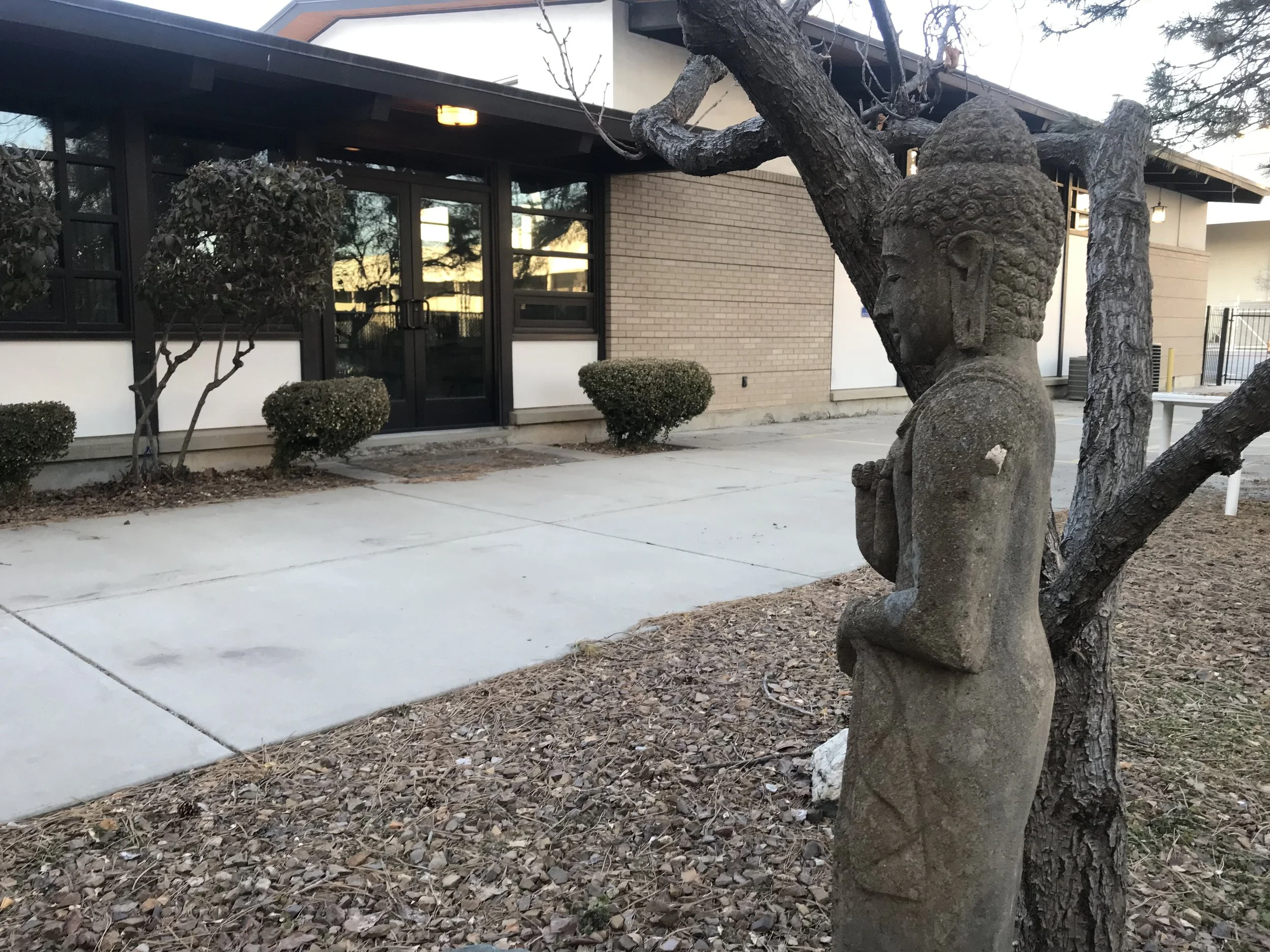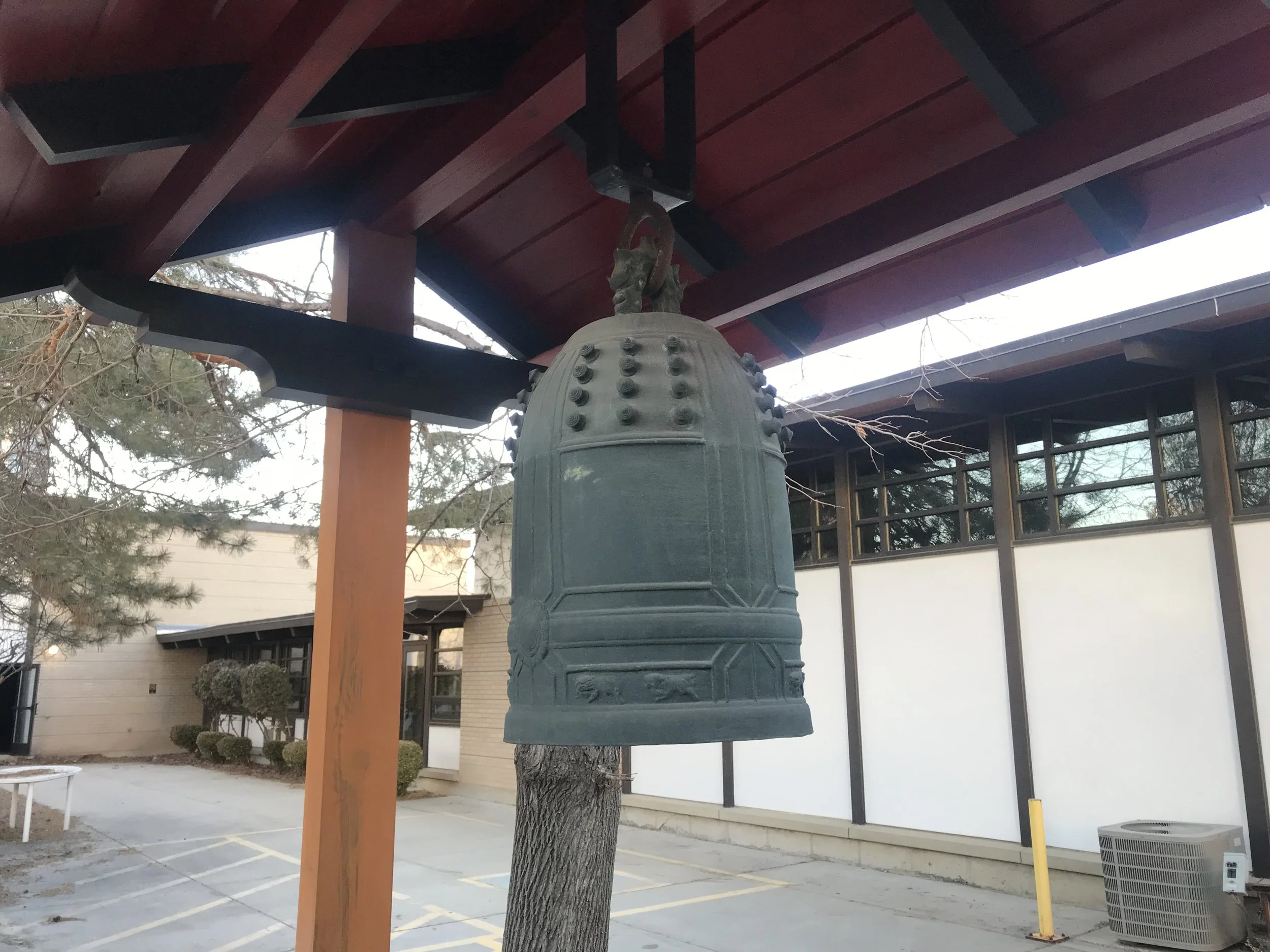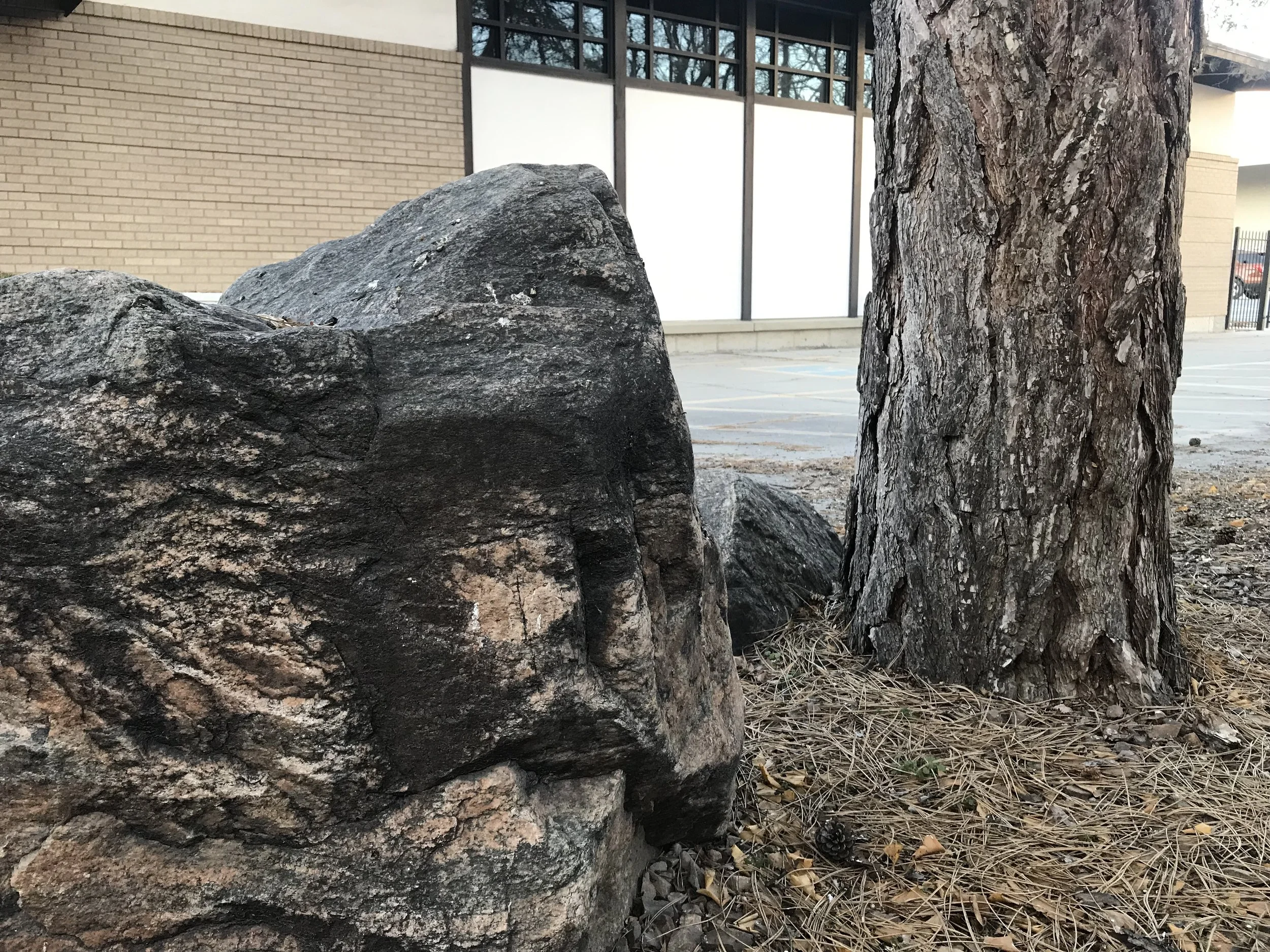Every month, Temple members receive a print copy of the Temple’s Buddhist Thoughts newsletter in the U.S. Mail. Please enjoy these selected excerpts from recent newsletters.
I love holidays! To me it really doesn’t matter where the tradition may have originated, I love them all. However, I know that it’s sometimes confusing about what is a Buddhist Holiday? This article is to define my own perception and celebration of holidays.
Many of you know that besides supervising Salt Lake City, Ogden, Honeyville and Idaho Oregon Buddhist Temples, I am also the Director of the Buddhist Churches of America Center for Buddhist Education (CBE) and Ministers’ Assistants program (MAP). Most of the CBE and MAP programs are held at the Jodo Shinshu Center (JSC) in Berkeley, CA. Therefore many of the seminars are difficult to attend in person for people not living in California.
Last week, Carmela and I attended the Mt. States District conf. in Denver, Colo., one of the member temples of our BCA district. I still remember that I was in awe of this place, when I first came here as a teenager in about 1975. The culture of Denver as a city wasn’t that different from Utah. A western vibe, but more modern and bigger, you had the Broncos (NFL), the Nuggets (NBA) and now the R
Rennyo Shonin (1415-1499) the eighth head priest of our sect of Buddhism Jodo Shinshu Hongwanji Ha is also referred to as the second founder of Jodo Shinshu with Shinran (1173-1263). The current head priest is our Gomonshu, Sennyo Shonin (1977- ). Between Shinran Shonin and Rennyo Shonin there was about a 200 year gap or eight generations.
I have read books, articles, blogs, etc., about the experience of Americans and Buddhism. How and why has this religion, founded by an Indian nobleman in a small Indian kingdom some 2,500 years ago moved throughout the world and now become firmly established as part of the spiritual tapestry of the United States of America?
I’m not really sure why I began this article with these particular lines. They are from one of the most famous poems in the English language, The Waste Land by T.S. Eliot. Yet, this is an article for May. Sometimes, I get these lines from some poetry or songs that run over and over in my mind and unless I write them down, they tend to dominate my thoughts, sometimes for days.
On April 8th, we Japanese Buddhists celebrate Hanamatsuri (Flower festival) the birthday of Siddartha Gautama, Shakyamuni Buddha. Hanamatsuri translates as “flower festival”. This name is in reference to the story of the Buddha’s birth in Lumbini’s garden over 2500 years ago. It was said that the baby buddha after being placed upon the Earth by two dragons, took seven steps and as he walked, flowers blossomed out of his footsteps.
I think if you are a native English speaker or very familiar with the English language, you will understand this word. The older I get, the more I agree with this statement of Klass that “I began to wonder whether the history of humanity is just an endless, but futile, struggle to impose order, certainty, and rationality onto a world defined by disorder, chance, and chaos.”
I’m beginning this article with short quote by one of my favorite Buddhist writers, Sharon Salzberg. She is explaining why “Right View” is the first of the eightfold noble path. It is very important to understand this eightfold path, which is the fourth of the four noble truths.
Happy Hoonko and New Year, Namo Amida Butsu! The traditional New Year greeting in Japanese is “Akemashite Omedetou gozaimasu” it is basically a congratulations on the opening of a new year. This quote I began with is from one of my favorite Buddhist writers Sharon Salzberg. Although, she is referring to the first of the Noble eightfold path, I think it is an appropriate explanation for the Buddhist view of greeting the new year. Although everyday can be viewed as a good day, the New Year season allows us to aspire and see it as a good year.
This has been the first Thanksgiving in many years when all three of Carmela and my daughters, Katie, Kacie and Taylor have been together for Thanksgiving. We now have a new member “Arrow Raja” Katie’s new baby boy. Yes, there are son in laws, boyfriends etc. However, from personal experience I understand that these may come and go, so I am just including the immediate family. However, for my holiday traditions, I like to include all the in laws, boyfriends, girlfriends etc. and cousins, friends of my family who come to my home for the Thanksgiving meal.
How many of you watched the game with the University of Utah (U of U) and University of Southern California (USC) on Saturday October 21? I know there are many of you who may not be fans of the University of Utah or even like college football. But I love watching college football. I am not a jock in any form. However, I do like college football.
Of my experiences on my long spiritual journey, one of the most surprising has been my encounter with the European Shin Buddhist Conference (ESC), particularly those held at Eko Haus in Dusseldorf, Germany. I feel a personal connection with Eko Haus which was founded by Mr. Yehan Numata in 1988. He was a friend of my grandparents in Los Angeles in the early 1900s.
When Carmela and I were first married, she asked me what does “Okusan” mean? Because members of the temple, especially the older members would call her “Okusan”. I explained it meant “woman behind the man”. She asked me, “What do you call a woman in front of the man? I gave her a one-word explanation, “Jama” (Obstacle). Of course, I was joking, it is a very obvious realization that without women, there would be no man.
This summer has been very busy and hectic. However, if I compare it to the lockdown of the Covid Pandemic, I will take busy and hectic any day. During the Covid lockdown, I did have the opportunity to visit our 48 contiguous states. I would not have been able to do that without the pandemic. Isn’t it interesting how some of the worst times, can be some of the best times.







